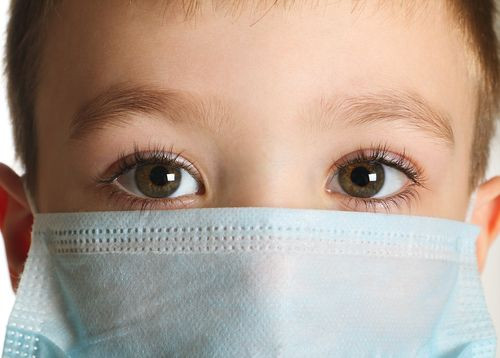Respiratory Virus Suddenly Sickens Hundreds Of Kids In Midwest And South: How The New School Year Exposes Students To Contagion

Hundreds of children have been sent to the hospitals throughout the Midwest for an unconfirmed respiratory virus that mimics intense cold and flu-like symptoms. Parents have been warned that there are beginning of the school year ailments their children will be exposed to as a result of the large groups of students they were otherwise separated from during the summer months.
The Enterovirus EV-D68 is most likely the cause of the breakout and has very common symptoms. The virus is sending 30 children to the hospital a day, where 15 percent of the patients have to be placed into intensive care units. September is peak season for enteroviruses, which has more than 100 different strands and is typically what causes a summer cold. The virus was first identified in 1962, however it’s fairly rare until now. Between 1987 and 2005, only 26 cases were reported worldwide, but in the past month 19 cases have been confirmed in Kansas City.
“It’s worse in terms of scope of critically ill children who require intensive care. I would call it unprecedented,” Mary Anne Jackson, division director for infectious diseases at Kansas City’s Children’s Mercy Hospital, told CNN. The large influx of 475 children forced the facility to call in help from other health care providers. “I’ve practiced for 30 years in pediatrics, and I’ve never seen anything quite like this.”
The symptoms came frighteningly quick and swift for one Colorado boy who complained of rapid cold-like symptoms and then was suddenly unable to breathe. He joined the 250 children a day admittance at Children’s Hospital in Colorado since Wednesday, according to hospital officials. “He was in really bad shape,” Jennifer Cornejo, the mother of 13-year old William Cornejo told News7 in Denver. “He came really close to death. He was unconscious at our house and white as a ghost with blue lips — he just passed out.”
The hospital started implementing their wintertime visitation policies in order to accommodate for the increase of respiratory viruses that have been circulating rapidly in their area. The hospital has treated more than 900 children and 86 of them, including William, needed to be admitted due to the severity of the virus. “My head started hurting,” William said. “And after that my lungs started closing up. It felt different.”
Experts don’t know why the virus has decided to rear its ugly head now, but the spread of the disease seems to be contributed to the new school year, low immune systems, and high volume of exposure to other students. At the beginning of any new school year pediatricians remind parents that children who are sick with infection, cold, or contagion of any sort should be kept home to receive the appropriate treatment. Parents should be aware of the following five commonly transmitted ailments a brand new school year may bring:
1. Pinkeye (Conjunctivitis):
Very contagious infection of inflammation in the eyelids that appear red, crusty, and become very itchy. Children must wash hands thoroughly with warm soap and water and avoid touching their eyes.
2. Strep Throat:
A bacterial infection that causes swelling and soreness in the back of the throat that spreads through close contact, unwashed hands, and sneezing or coughing. Tell your children not to share utensils, food, drinks, or napkins.
3. Head Lice:
This is not a transmittable disease but a common problem among children, particularly girls. It’s a parasitic insect that infests the head and anywhere else on the body with hair. It’s not associated with poor hygiene but children shouldn’t be sharing combs, hairbrushes, hats, or helmets.
4. Molluscum Contagiosum
This skin rash is very common and spreads through direct contact. The best way to help your child avoiding contraction is to wash hands often with soap and water and avoid sharing personal items.
5. Walking Pneumonia
As the most common type of pneumonia for school-aged children, coughing and sneezing are culprits of the spread. The bacteria can be treated effectively with antibiotics, but children need to wash their hands with warm soap and water often.
This particular outbreak has Missouri Department of Health and Senior Services advising its residents to take particular precautionary measures. The alert asks locals to frequently wash hands, avoid physical contact with anyone who is sick, and asks clinicians to be on the lookout for unusual respiratory viruses.
"Most enteroviruses cause either a little bit of a cold or a diarrheal illness -- a few cause meningitis," William Schaffner, chair of Vanderbilt University’s Department of Preventative Medicine, told NBC. "This one is the, if you will, odd cousin. It causes prominent respiratory symptoms. Why it does that, we're really not sure. All of these folks are going to get better. Some of them have more severe illness, such as these children who have developed asthma and are hospitalized. But they should all get better."
Published by Medicaldaily.com



























